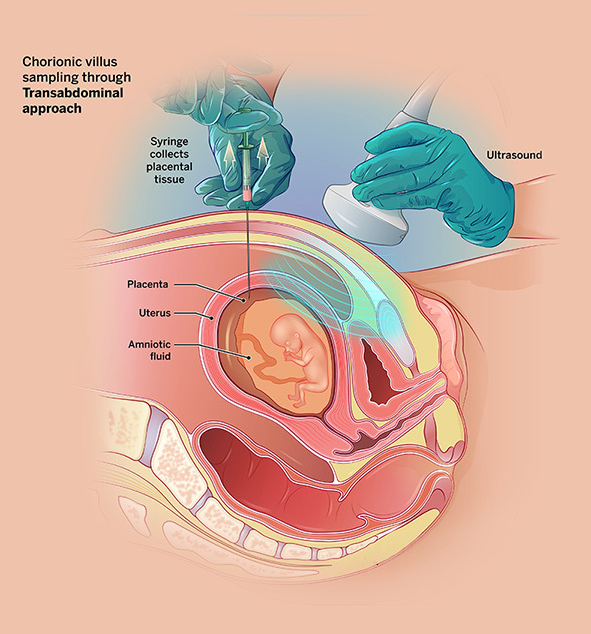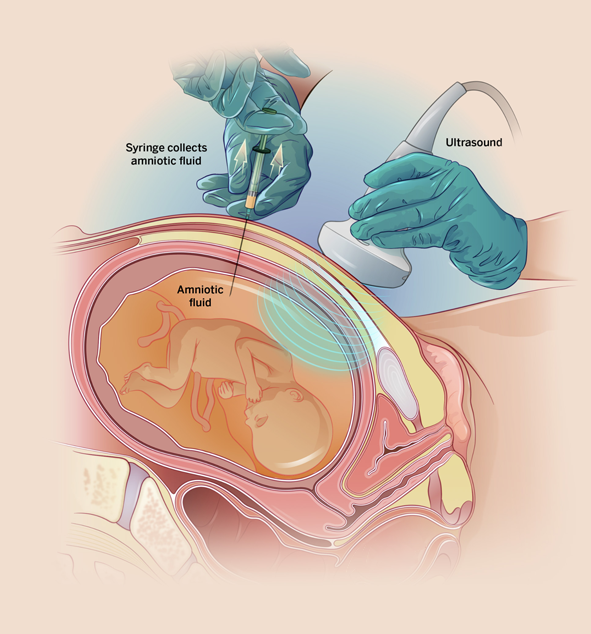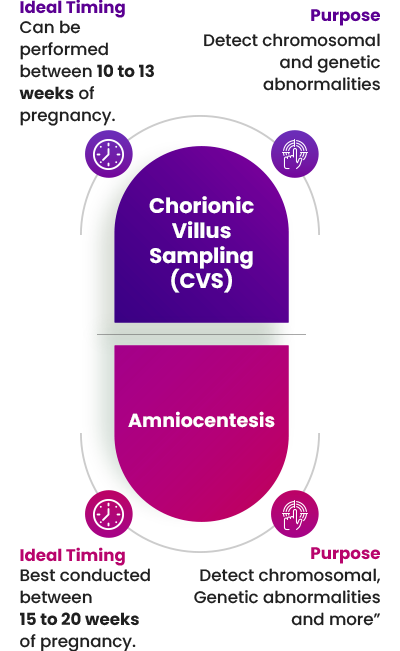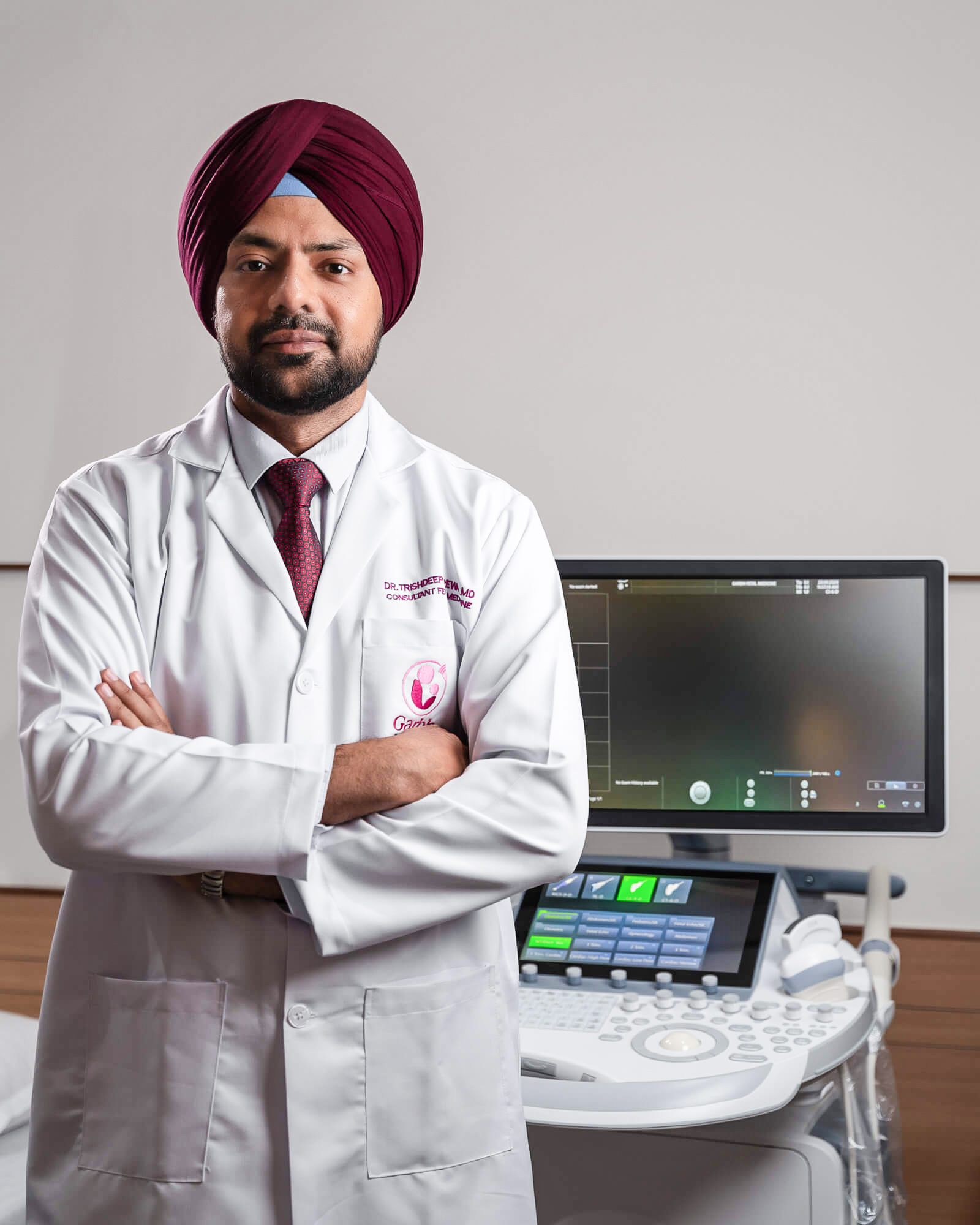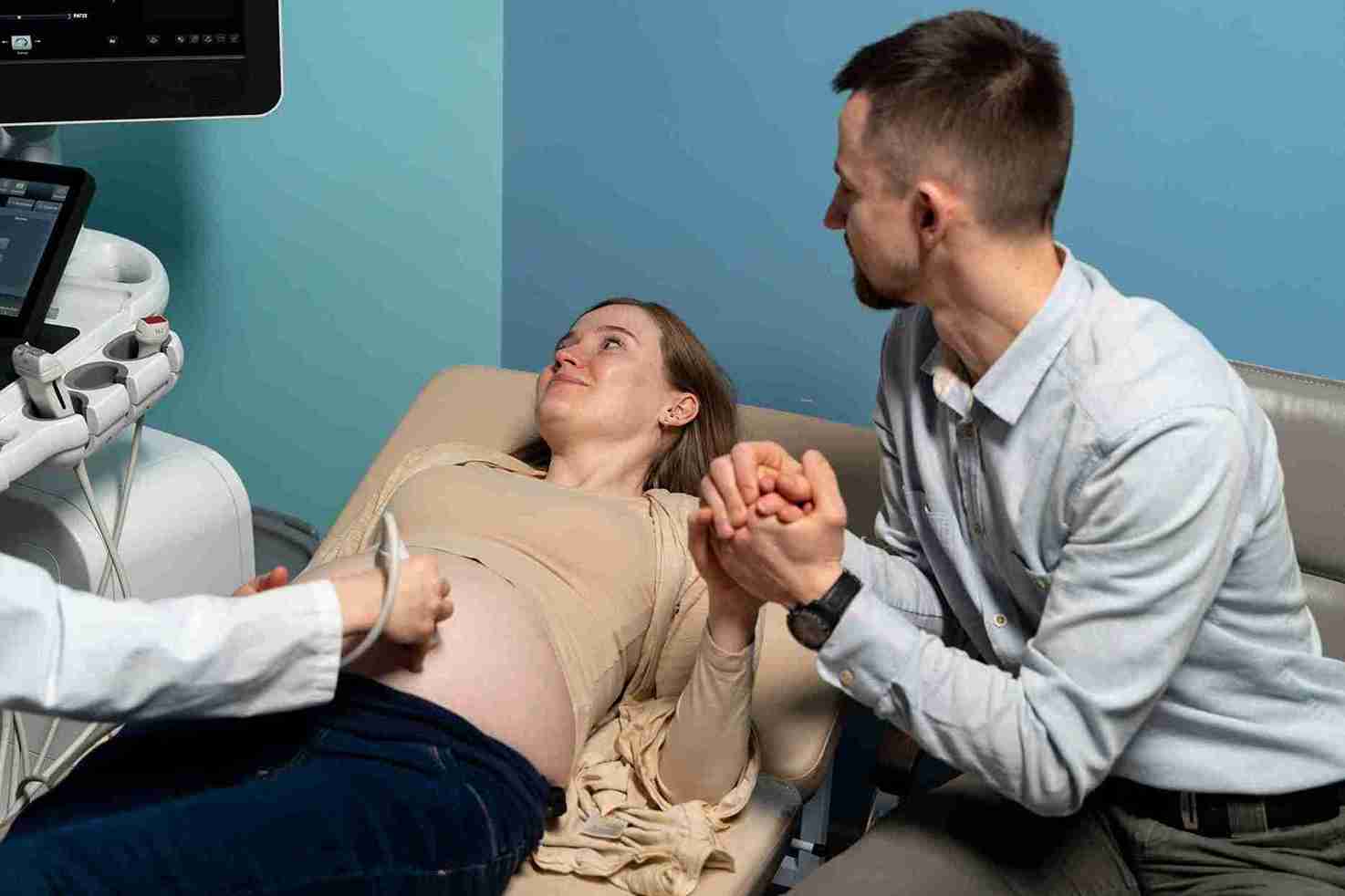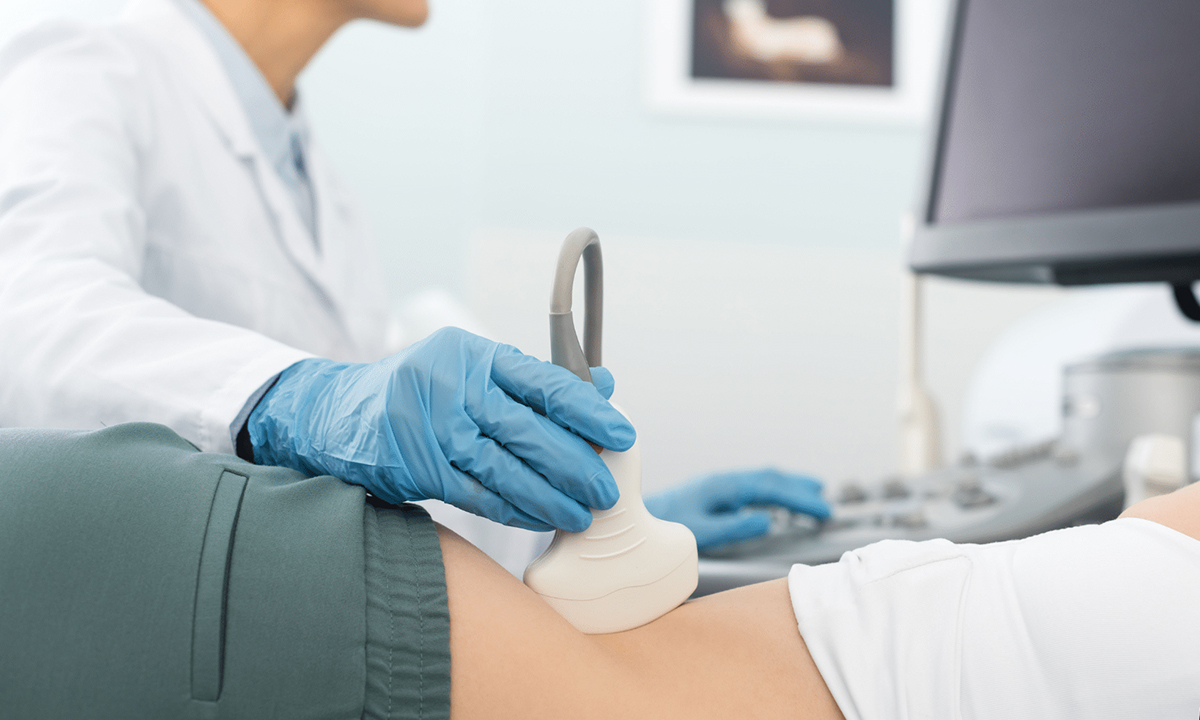
Types of Invasive Tests Offered
At Garbh, we provide two primary types of invasive prenatal tests: Chorionic Villus Sampling (CVS) and Amniocentesis. Both tests are conducted by our experts with utmost precision and are designed to collect samples that will help assess the health and development of the fetus accurately. These tests are crucial for detecting chromosomal abnormalities and other genetic disorders early in pregnancy, providing valuable insights for ongoing prenatal care.
Chorionic Villus Sampling (CVS)
Chorionic Villus Sampling, or CVS, is a test conducted typically between the 10th and 13th weeks of pregnancy. This procedure involves collecting a small sample of cells from the placenta, the organ that links the mother's blood supply with her unborn baby. CVS can identify chromosomal and genetic conditions such as Down syndrome, cystic fibrosis, and more . The test is performed either through the cervix or the abdominal wall, depending on the position of the placenta and the medical recommendation.
What to Expect: Before, During, After
- Before: Consult with your healthcare provider about the risks and benefits. You may need to avoid certain medications and ensure you have a relative or friend to accompany you home.
- During: The procedure typically takes about 15-30 minutes. You might feel some discomfort or pressure when the sample is taken.
- After: Mild cramping or spotting is normal. Results are typically available within 1-4 weeks. It's advisable to rest at home and avoid any strenuous activity, including lifting heavy weights.
- Complications: In recent reports, fetal loss has been reported to vary from 0.2% to 2%, being closer to the lower limit. Complications like leaking amniotic fluid and infections in the amniotic sac (chorioamnionitis) are rare.
